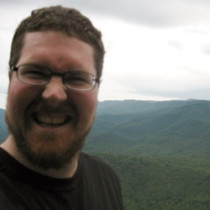Th om Epps, CEE graduate student, will be heading to Australia this summer to conduct his research, thanks to funding he received by the National Science Foundation’s East Asia and Pacific Summer Institutes. Epps’s proposal was one of the 40,000 the foundation receives each year for research, education and training projects, of which only about 11,000 are funded.
om Epps, CEE graduate student, will be heading to Australia this summer to conduct his research, thanks to funding he received by the National Science Foundation’s East Asia and Pacific Summer Institutes. Epps’s proposal was one of the 40,000 the foundation receives each year for research, education and training projects, of which only about 11,000 are funded.
Epps’s research involves the development of spatial analyses using GIS and Python scripting to better assess how impervious surfaces are connected in urban watersheds along piped stormwater drainage networks. He is exploring different ways to assess this connectivity through methods that relate how runoff pathways effect measured runoff and water quality observations made in the stream. By connecting the flowpath information with differences in stream quality, he will be able to determine critical source areas in the watershed that contribute most to runoff production and non-point source pollution. These areas can then be targeted for disconnected by employing infiltrative green infrastructure based on science instead of the currently utilized empirical methods.
“I am humbled and excited to have been chosen by the NSF to take my research onto the international stage to work with some of the best stormwater engineers in the world,” he said. “I am especially thankful to have the opportunity to strengthen and grow the existing relationship that Professor Hathaway has forged through his own research and collaboration with our Australian counterparts, and I am glad to be representing the University of Tennessee by conducting my research Down Under.
“ This program will allow me to validate models I have been developing that will help cities determine where green infrastructure installations such as bioretention areas can be placed within the urban landscape to best address runoff quantity and water quality issues in urban streams.”
CEE Professor Jon Hathaway was recently awarded the prestigious NSF CAREER award and cites Epps’s work as an integral part of the award. “Thom’s research functioned as a proof of concept in my CAREER award proposal, and offers a novel approach to improve watershed restoration and management,” said Hathaway. “This program gives us a jump start on the CAREER project by allowing Thom access to a unique experimental watershed worldwide to test and refine his programs. This honor is well deserved and I have no doubt he will represent the University well with our Australian colleagues.”